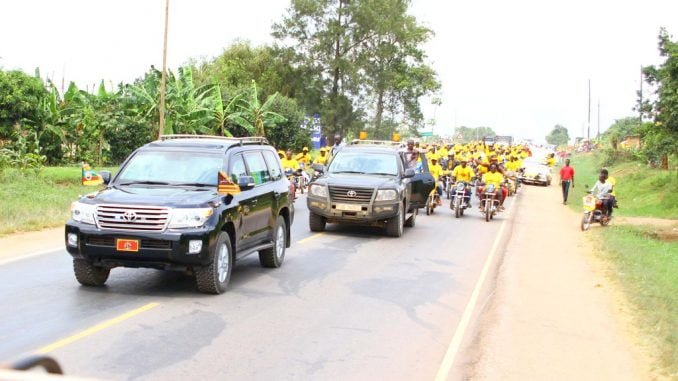
President Yoweri Museveni has failed to incorporate the boda boda industry into the fold of political supporters despite various overtures extended to the industry over the year, according to Dr. Adams Culver, an assistant professor of politics at John Hopkins University.
This is contained in a working paper titled; Elections, Incorporation, and the Politics of Informality in Kampala, Uganda presented by Dr. Culver at Makerere Institute of Social Research (MISR) on Wednesday.
The paper largely focuses on Kampala boda boda industry. According to Dr. Culver, the paper was informed by literature review of books and newspaper articles that have been written on the subject and interviews he conducted in 2016 when he was a visiting research fellow at MISR.
Reading literature review, Dr. Culver said, one gets an impression that Museveni has successfully captured and folded the boda boda industry in his political armpit but the reality presents a different scenario.
“Much of what I heard during my fieldwork was a deep rooted discontent among boda boda riders with what they felt to be a lack of adequate representation, participation or avenues to simply have their stories told and concerns expressed in the public realm,” he opined in the paper.
He says boda boda riders see themselves as a powerless a group that is being used by powerful politicians.
The Museveni regime, he argued has consistently worked to either disrupt or control associational life of the boda boda industry. One of the tactics Museveni has leveraged, Dr. Culver says is to intervene on boda boda’s behalf in a number of disputes they had with the defunct Kampala City Council and Kampala Capital City Authority.
“But the failure of (Museveni’s) incorporation,” Dr Culver writes, “in turn only intensified, I think the desire for political community among many of those frustrated, for who the desire for political community does not simply dissipate or disappear. There is certainly a danger that frustration with the current political order of things could lead to violent rebellion.”
Boda Boda 2010
Dr. Culver says the boda boda riders he interacted with saw boda boda 2010, which was the largest association, as representative. “It could represent their interests in negotiations concerning taxation and regulation, assume responsibility for registering riders, and perform certain welfare functions like providing assistance for riders and credit for those trying to purchase their own boda bodas,” he argues.
The riders were also cognizant that boda boda 2010 wasn’t representing their interests but those of the state.
– URN



